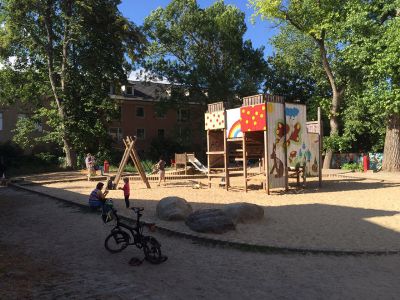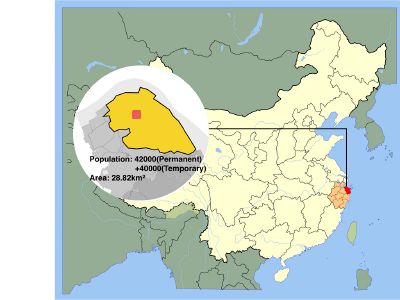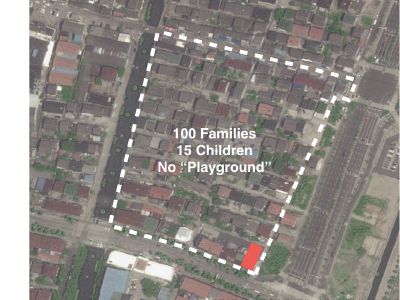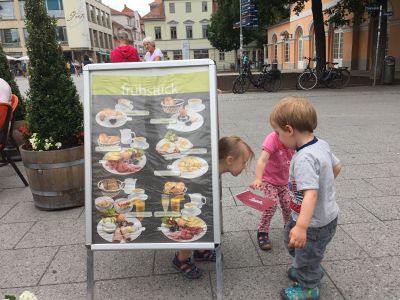Sinan Chen (talk | contribs) (Created page with "400pxFile:Sinan_Körper Raum Stadt.001.jpeg") |
Sinan Chen (talk | contribs) No edit summary |
||
| (12 intermediate revisions by the same user not shown) | |||
| Line 1: | Line 1: | ||
[[File: | == Playground == | ||
[[File:Playground - Theaterplatz.jpeg|400px]] | |||
"Playgrounds for small children under the age of six should be placed in the vicinity of the flat dwellings.” | |||
(This provision applies to all tenement houses containing 8 families and more.) | |||
——Danmark, 1939 | |||
---- | |||
'''Key Characteristic:''' | |||
Everywhere, Natural Idea, Exploration. | |||
---- | |||
'''Comparison:''' | |||
Everywhere | |||
Playground for children is common in Europe as necessity party in "people-friendly urban environment", for example in Berlin. | |||
Also there are websites collecting the distribution of playground in Berlin and providing brief information for selection.// | |||
[[File:Berlin Playground Distribution.png|400px]] [[File:Berlin Playground Information.png|400px]] | |||
However the situation is total different to Chinese children. When I was a kid, there was still farm around where children can have fun. Now there are full of houses and from my perspective, there is no place to children. Comparing the maps between Berlin and my hometown(Kandun, Cixi, Zhejiang Province, China), what a pity! As a rough conclusion, there are main 4 "playgrounds" for children in China are 1.Adult Exercise Equipments in Public, 2.Big Theme Park for Children, 3.Temporary Inflatable Castle in Public, 4.Commercial Play Space in the Mall. | |||
[[File:Kandun Cixi Zhejiang.jpeg|400px]] [[File:No playground in Kandun.jpeg|400px]] | |||
Natural Idea | |||
“Because it’s difficult to find non-commercial playground information. And I find that frustrating. | |||
Because a playground doesn’t have to cost a million bucks and come in a box. In fact, it’s better if it doesn’t.” | |||
——Paige Johnson, 2008 | |||
游乐场的起源与现代化发展的起点(荷兰) | |||
Aldo van Eyck | |||
Friedrich Froebel 1782-1852 (gifts to children)——kindergarten | |||
Exploration | |||
“Standardisation is dangerous because play becomes simplified and the child does not have to worry about his movements.” | |||
——Helle Nebelong | |||
“Interplay between the object and the child makes his total world — play. He exploits the vitality of his environment and draws upon his imagination to create his world.” | |||
——M. Paul Friedberg, 1970 | |||
Arquitectura Expandida (AXP) is a design collective based in Bogota, Colombia – a citizen-led laboratory that builds structures -physical, social and cultural- that invite communities to self-organise and take responsibility towards their own territory. | |||
Floating university-Saturday for children | |||
---- | |||
'''Observation:''' | |||
[[File:play with billboard.jpg|400px]] | |||
The playground is not only for children, it is the meeting and relaxing point to everyone. | |||
---- | |||
'''Experiment:''' | |||
"Communicating" with neighbourhood(children). | |||
Creating a play "area". | |||
---- | |||
'''Reference:''' | |||
1.http://www.architekturfuerkinder.ch/index.php/geschichte/danmark/ | |||
2.https://www.spielplatztreff.de/spielplaetze/berlin | |||
3.https://www.ihrspielplatz.de/ | |||
4.https://www.youtube.com/watch?v=wEUQ5kSlDpI&t=2109s | |||
---- | |||
Latest revision as of 06:53, 10 July 2018
Playground
"Playgrounds for small children under the age of six should be placed in the vicinity of the flat dwellings.” (This provision applies to all tenement houses containing 8 families and more.)
——Danmark, 1939
Key Characteristic:
Everywhere, Natural Idea, Exploration.
Comparison:
Everywhere
Playground for children is common in Europe as necessity party in "people-friendly urban environment", for example in Berlin.
Also there are websites collecting the distribution of playground in Berlin and providing brief information for selection.//
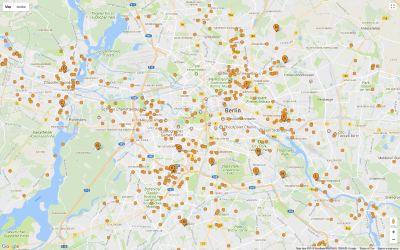
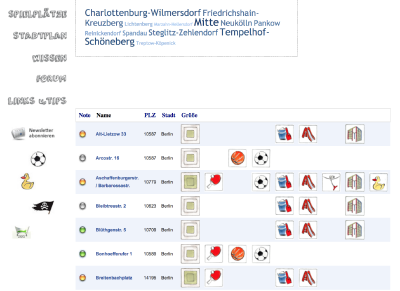
However the situation is total different to Chinese children. When I was a kid, there was still farm around where children can have fun. Now there are full of houses and from my perspective, there is no place to children. Comparing the maps between Berlin and my hometown(Kandun, Cixi, Zhejiang Province, China), what a pity! As a rough conclusion, there are main 4 "playgrounds" for children in China are 1.Adult Exercise Equipments in Public, 2.Big Theme Park for Children, 3.Temporary Inflatable Castle in Public, 4.Commercial Play Space in the Mall.
Natural Idea
“Because it’s difficult to find non-commercial playground information. And I find that frustrating. Because a playground doesn’t have to cost a million bucks and come in a box. In fact, it’s better if it doesn’t.” ——Paige Johnson, 2008 游乐场的起源与现代化发展的起点(荷兰) Aldo van Eyck Friedrich Froebel 1782-1852 (gifts to children)——kindergarten
Exploration
“Standardisation is dangerous because play becomes simplified and the child does not have to worry about his movements.” ——Helle Nebelong “Interplay between the object and the child makes his total world — play. He exploits the vitality of his environment and draws upon his imagination to create his world.” ——M. Paul Friedberg, 1970 Arquitectura Expandida (AXP) is a design collective based in Bogota, Colombia – a citizen-led laboratory that builds structures -physical, social and cultural- that invite communities to self-organise and take responsibility towards their own territory.
Floating university-Saturday for children
Observation:
The playground is not only for children, it is the meeting and relaxing point to everyone.
Experiment:
"Communicating" with neighbourhood(children).
Creating a play "area".
Reference:
1.http://www.architekturfuerkinder.ch/index.php/geschichte/danmark/ 2.https://www.spielplatztreff.de/spielplaetze/berlin 3.https://www.ihrspielplatz.de/ 4.https://www.youtube.com/watch?v=wEUQ5kSlDpI&t=2109s
